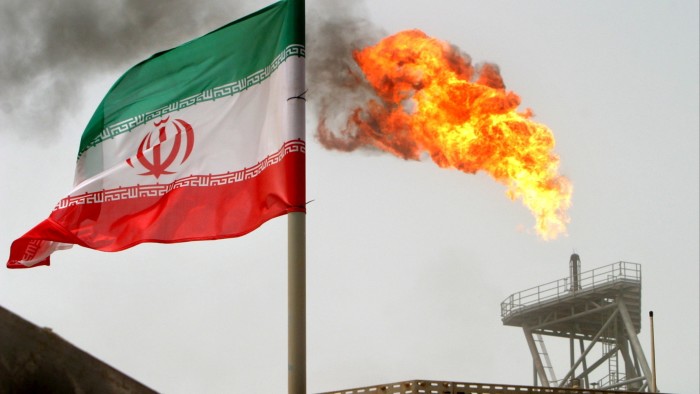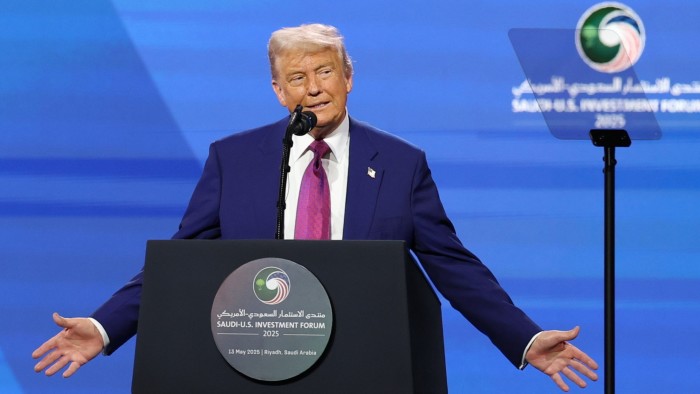US sanctions companies alleged to be shipping Iranian oil to China

Unlock the White House Watch newsletter for free
Your guide to what Trump’s second term means for Washington, business and the world
The US Treasury Department has sanctioned more than 20 companies it says are involved in shipping Iranian crude oil worth billions of dollars to China, the latest move in the Trump administration’s “maximum pressure” campaign on Tehran.
The Treasury’s Office of Foreign Assets Control said it was sanctioning nearly two dozen groups involved in Iran’s “illicit international oil trade”.
“Today’s action underscores our continued focus on intensifying pressure on every aspect of Iran’s oil trade, which the regime uses to fund its dangerous and destabilising activities,” said Treasury secretary Scott Bessent.
He said the US would “continue targeting this primary source of revenue, so long as the regime continues its support for terrorism and proliferation of deadly weapons”.
The action targets a number of Hong Kong-based entities that the US alleges are front companies for Sepehr Energy, a commercial affiliate of Iran’s Armed Forces General Staff.
The US said Sepehr Energy was using the companies, which include Xin Rui Ji, Star Energy and Milen Trading, to broker and receive shipments of Iranian oil delivered to “teapot” refineries — independent entities that have long been considered the main Chinese buyers of Iranian crude.
It said the companies were set up in China and operated there, but their commercial activities were controlled by Sepehr Energy and its officials, at least one of whom has been sanctioned by the US.
The Treasury said that once an oil sale was completed, the proceeds were remitted from the front companies back to the AFGS. It added that revenue from the sales underwrote “the development of ballistic missiles and unmanned aerial vehicles, as well as financing regional terrorist groups”.
The US is also sanctioning CCIC Singapore, which it says obfuscated the Iranian origin of the oil through ship-to-ship transfers, oil blending and document falsification, and a number of Hong Kong-based companies it said operated as intermediaries between Sepehr Energy and the Chinese teapot refineries.
The Treasury action also targeted the fleet of ageing “shadow fleet” oil tankers used by Sepehr Energy to facilitate Iranian oil shipments to China.
The latest sanctions are part of a broad crackdown on Chinese entities the US accuses of buying, or facilitating the purchase, of Iranian crude oil. They are part of Washington’s strategy of exerting pressure on Iran as it negotiates with it over its nuclear programme.
In a speech at a US-Saudi investment conference on Tuesday, President Donald Trump said he wanted to avoid conflict with Iran, offering Tehran a “new and a better path towards a much more hopeful future”.
But he added: “If Iran’s leadership rejects this olive branch . . . we will have no choice but to inflict massive maximum pressure [and] drive Iranian oil exports to zero.”
In March, the Treasury put sanctions on a Chinese “teapot” refinery for the first time. It targeted a second such facility last month.
The moves marked a renewed effort by the US to crack down on Iranian oil exports following criticism that the Biden administration did not take sufficiently strong action.
In April, the Treasury put sanctions on Shandong Shengxing Chemical for allegedly buying more than $1bn in Iranian crude in violation of US sanctions from sources that included a front company for Tehran’s Islamic Revolutionary Guard Corps.
Beijing has repeatedly criticised the US sanctions and accused Washington or employing a “long-arm jurisdiction” that undermines international trade.





